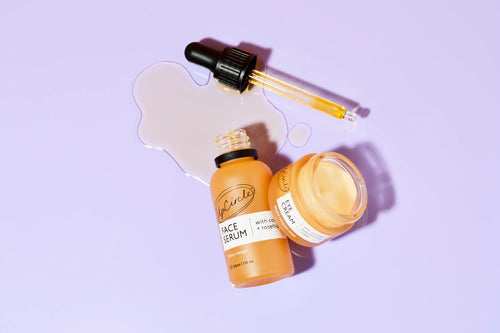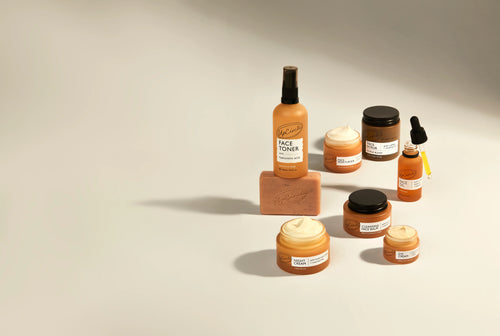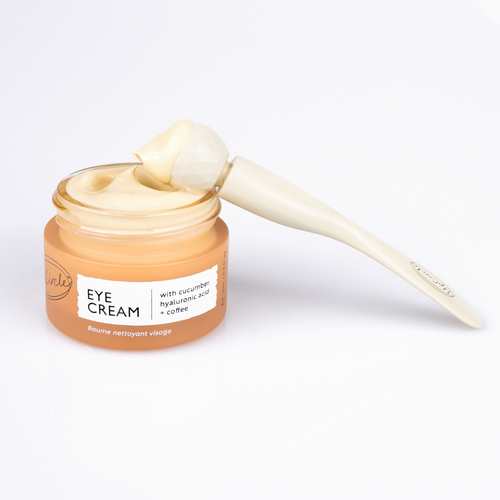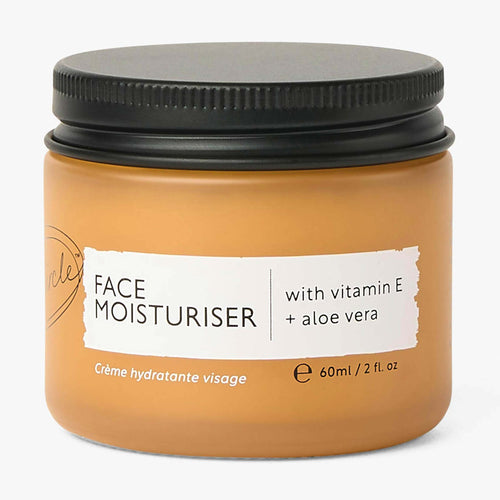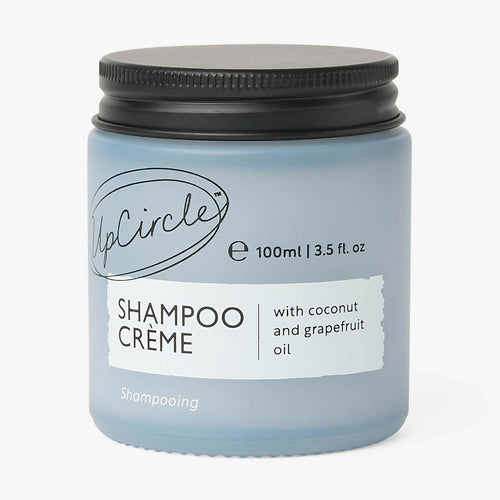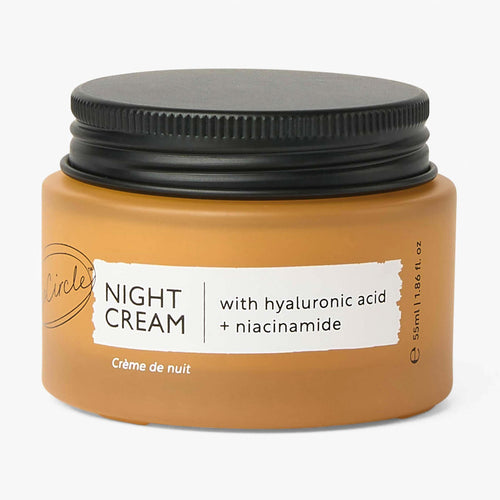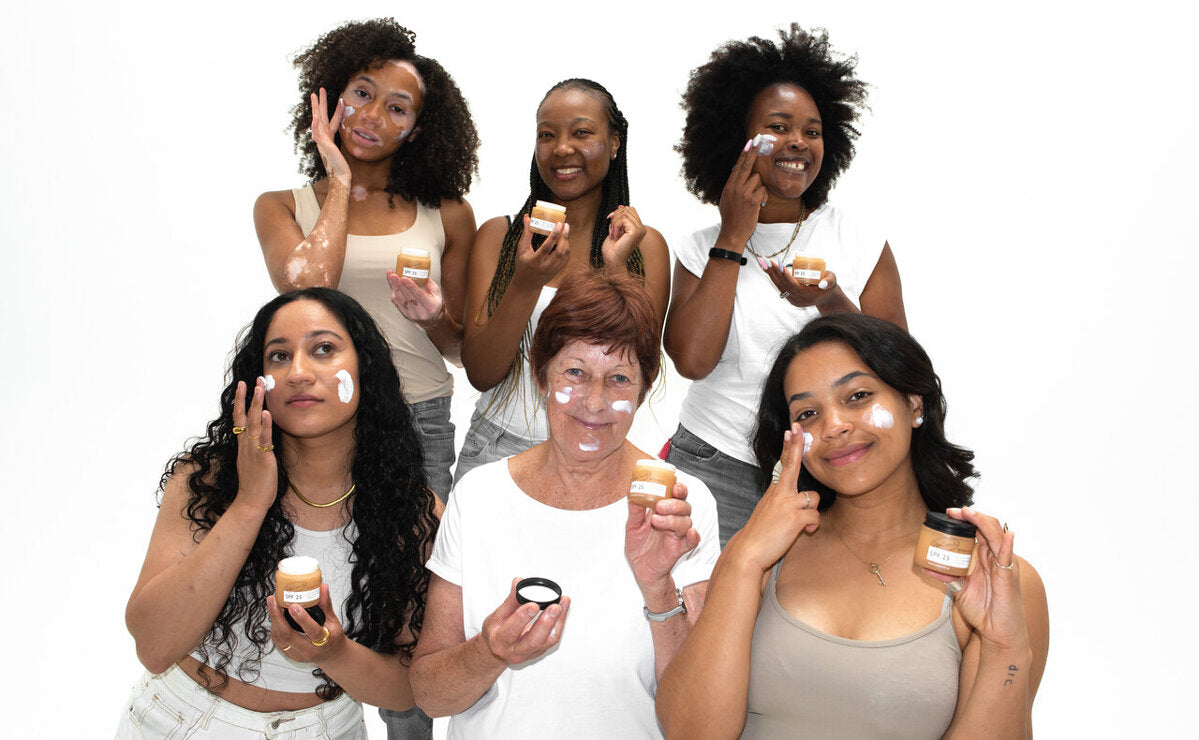Almost all of us have experienced irritated skin at some point in our life. It’s not much fun as it can be uncomfortable and leave you feeling self-conscious, depending on where it is. We want to start by saying that your worth is not defined by your skin. Our skin does a wonderful job at protecting us, so you always look on it with kindness. All skin is wonderful skin!
From itchy skin to redness and peeling, skin irritations can be painful, frustrating and can also knock your body confidence. In fact, up to 70% of women have reported symptoms of sensitive skin to some extent, so rest assured that it’s a common issue. Knowing that you’re not alone is encouraging, but it doesn’t mean that you need to suffer on with it.
Although how sure can you be that you are truly suffering from sensitive skin? It’s super easy to assume you are if you experience any kind of skin irritation, but that might not always be the case.
We’re here to help you uncover the differences between sensitive and sensitised skin. So if your skin seems to react to everything and you’re not sure what to try next, read on to work out what’s really happening with your skin.
What is sensitised skin?
Sensitised skin can be triggered by many factors, such as a reaction to ingredients in harsh skin products, exposure to harmful UV rays, extreme weather conditions or lifestyle choices such as smoking or consuming alcohol. In these cases, your skin has effectively been primed to be more reactive to other things.
Usually, issues with sensitised skin can be resolved with changes to your skincare routine and lifestyle. So, even if environmental factors have damaged your skin’s barrier, the good news is that with the right skincare routine and nourishment your skin can be repaired and rejuvenated.
Eliminating harsh artificial chemical-laden products from your skincare routine can be an excellent first step, before reintroducing more natural products that are specially formulated to allow your skin to be as healthy as possible.
What is sensitive skin?
Although the two terms sound similar, there are some marked differences between skin sensitisation and sensitive skin.
If you have sensitive skin, then it’s usually an inherited condition that can leave your skin prone to conditions such as rosacea, psoriasis, and eczema. And while you may wish there were a miracle cream that could change your DNA, it’s your genetics that causes sensitive skin.
That’s not to say there aren’t things you can do to minimise the flares and troublesome times. Often, it’s a case of getting to know your triggers and reducing your exposure to them.
How to treat sensitive skin
Sensitive skin is thin and prone to flushes, dry patches and broken capillaries. The best way to manage skin sensitivity is to use gentle, natural skincare products designed to soothe and calm irritation.
Choose balanced formulas that protect your skin’s natural barrier to reduce the symptoms of sensitive skin and avoid chemical peels or products that contain harsh astringents, as these could thin your skin further.
If you have sensitive skin, there are also some small lifestyle changes that you can make to help alleviate the symptoms:
- Switch to fragrance-free shower gel and soap
- Use a gentle non-biological washing powder
- Take warm (not hot) showers
- Avoid perfume and use essential oils instead
How to treat sensitised skin
The symptoms of sensitised skin are similar to those of sensitive skin, so it’s easy to mix up the two conditions.
Skin sensitisers and environmental aggressors such as central heating, air conditioning or pollution can all cause sensitised skin – and the only sure way of improving the symptoms is to make changes to your environment and lifestyle.
We appreciate that it’s easier said than done – and making changes to your surroundings is not always possible. However, there are some simple steps you can take to improve sensitised skin without a drastic overhaul of your life!
Here’s what to do to manage sensitised skin if you experience a flare-up:
- Keep your skincare regime simple – use gentle cleansers that will diffuse any redness.
- Don’t over-exfoliate – stick to a mild exfoliator and use once a week to remove dead skin cells.
- Use a weekly face mask – strengthen, hydrate, and protect your skin with a nourishing face mask.
Don’t forget the SPF!
The sun is wonderful for lifting our mood and delivering a healthy dose of Vitamin D. But, you don’t need more than a little, and you should always take care in the sun. Using a broad-spectrum, high SPF mineral sunscreen daily can play a crucial part in reducing the effects of sensitive and sensitised skin, as it helps to keep your skin barrier protected from irritants and impurities.
Our SPF 25 mineral sunscreen is formulated with skin-soothing zinc oxide and aloe vera to protect and quench the skin and minimise any irritation. We always recommend reapplying every two hours especially if you’re exposed to the sun to get the most effective protection or making friends with the shade too!
Does makeup irritate sensitive and sensitised skin?
Some cosmetics can exacerbate the symptoms of sensitive and sensitised skin, so if you are introducing a new product to your beauty routine, then always test it first.
Dab a small amount behind your ear before going to bed to see if irritation develops overnight. It’s worth repeating this over a few nights to see if your skin tolerates the product.
It’s also a good idea to declutter your makeup bag and get rid of any products that are old, or past their best, as they can become contaminated. The last thing you want to be doing is applying aggressors to already red, itchy, or sore skin.
Finally, make sure all the cosmetics you use are organic and use only natural ingredients, as these are far less likely to cause further irritation.
Helping you to maintain healthy skin
By shedding some light on the differences between sensitive and sensitised skin, we hope you can now recognise whether your skin is sensitive or sensitised and develop a skincare routine using products designed to help manage and maintain healthier skin.
Need some help to determine your skin type? Take our personalised skincare quiz to create your bespoke UpCircle skincare routine.

